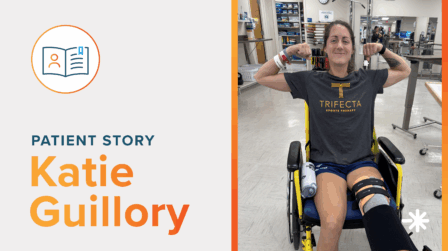Considerations When Amputation is a Choice

If you are in the position of choosing whether or not to have a limb amputated, remember that it is a personal choice and there is no “right” answer–only an answer that will work best for you and your lifestyle. These considerations may help you make your decision.
For those who are not born with congenital limb deficiencies, amputations are most likely the result of injury or disease. Sometimes, based on the prognosis, there really is no other option than amputation, and it is not a true choice. Other times, a patient is given a choice between keeping a limb that may not be restored to full functionality and amputation followed by the possible use of a prosthesis.
If you are in the position of choosing whether or not to have a limb amputated, we encourage you to consider all aspects of limb loss and functionality, and make your choice by balancing what is most important to you and your life moving forward, as well as what is most medically safe and reasonable.
Get Multiple Opinions
Talk to your current medical care team, but also consider getting a second opinion. Sometimes, different providers will see things from different angles, and it is important that you understand your prognosis before making your decision.
Your Prognosis and Everyday Activities
When considering amputation, think about the quality of your life post-amputation. Are you very physically active? Do you enjoy hands-on activities that require high levels of dexterity, like knitting or woodworking? Balance your lifestyle with the expected outcome of your amputation. Which of your activities could you reasonably adapt and continue to do with prosthetic devices? Would you be able to continue these activities if you choose not to amputate?
It may be the case that keeping your limb will reduce or eliminate your functionality in the activities you like to do. Or, it may be unclear whether or not your limb will regain partial or full functionality. Sometimes, patients opt to keep their limbs and later decide to have them amputated because the limb does not regain functionality and actually hinders their lifestyle.
Also consider whether life without a limb may negatively impact your ability to perform on a personal or professional level. Especially if you are not experiencing pain along with loss of function, perhaps functionality is not as important as appearance.
You Are Adaptable
Human beings are very adaptable. You are capable, and can push forward in the face of danger and trauma. No matter your choice, you likely have changes ahead. Work with your care team and your loved ones to make the best decision for you.
Should you choose to amputate, do so knowing that amputation is not the end; it is the beginning of a new chapter of your life that can bring challenges, but also a great deal of understanding, compassion, and motivation.
Talk with Someone Who’s Chosen Amputation
Meet with a certified peer mentor who can provide support and encouragement throughout your journey.
Latest Updates
Subscribe to stay up-to-date on our latest posts.


